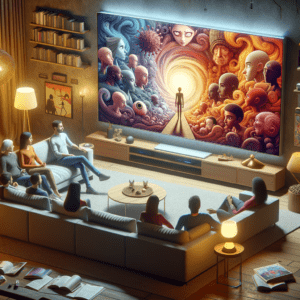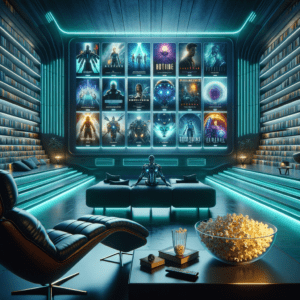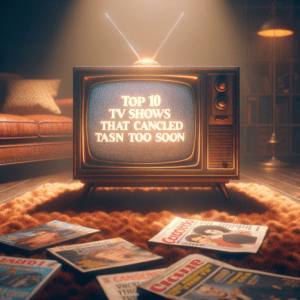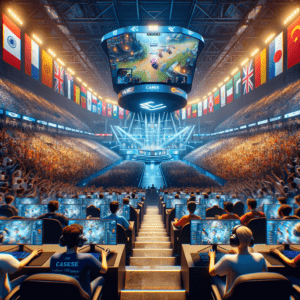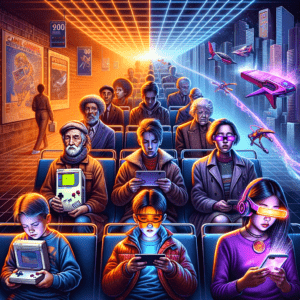Growing up, I was absolutely glued to the television. It was like this magical portal into different worlds, both real and make-believe. But I gotta say, for the longest time, the TV didn’t quite seem to show the world I was living in. I remember plopping down on the couch, popcorn in hand, thinking, “Hey, where’s someone like me on this screen?” It wasn’t something I obsessed over as a kid, but looking back now, it’s kind of crazy how that lack of representation might’ve quietly shaped my ideas about what I could become.
Recognition and Reflection
Representation is a big deal, and yeah, it might sound like a bit of a broken record, but it really can’t be said enough. Seeing someone on TV who mirrors your own life, identity, or culture is like spotting a familiar smile in a crowd—it just feels right. I remember the first time I watched a show where the characters felt like they could step out of the TV and into my world. I breathed a sigh of relief. These weren’t just any characters; they felt real, complete with all their messy, human imperfections. It made me realize just how powerful true, diverse representation is. It doesn’t just tell great stories—it broadens our understanding of each other.
Breaking Stereotypes
Breaking down stereotypes is one of those heavy-lifting tasks that representation helps with. We all know those pesky clichés—characters getting stuffed into predictable boxes that don’t do anyone any real favors. How many times have friends of mine been assumed to have certain skills or traits just because of what was on TV? Too many to count.
Today’s TV landscape is like an artist with a bigger palette, showing characters from all walks of life—different races, genders, sexualities, abilities—living their lives without being boxed in. And that’s a huge win.
Opening Doors
When TV becomes more diverse, it throws open doors wide for audiences and creators alike. Those who’ve been sidelined are now scripting their own stories, and let me tell you, that’s crucial. There’s just something about hearing stories from those who’ve lived them that resonates on a deeper level and dodges those cringy clichés.
Imagine for a moment being a kid again in today’s world, seeing superheroes who look like you or scientists who speak your language right there on TV. It’s not just thrilling; it’s liberating. It lets kids envision endless possibilities beyond what society might’ve tried to box them into.
A Better Mirror
I kind of think of TV as a funhouse mirror sometimes—reflecting bits and pieces of our own worlds but with varying degrees of distortion. The more diverse these reflections become, the clearer and more accurate they are. And hey, it’s not just for minority groups—a clearer picture helps everyone.
TV influences how we view each other, no doubt about it. Exposing viewers to a broader tapestry of lives and ideas changes perceptions, fostering empathy along the way.
But hold up, it’s important that these characters aren’t just set pieces. We need depth, agency, and their own stories, otherwise, it’s just hollow representation—none of us need that.
Imperfections in Execution
Let’s keep it real for a sec—the road to representation can be a bit bumpy. Sometimes shows feel like they’re trying a bit too hard, and characters end up being as flat as a pancake—reduced to one aspect of their identity. It’s awkward and, frankly, not the best use of screen time.
It’s a big ask to strike that perfect balance, especially when everyone’s feedback is just a tweet away. And yet, despite the hiccups, real progress is happening. LGBTQ+ characters, for example, are making their way from sidekick status to forefront heroes. So yeah, it’s messy, but we’re getting somewhere.
The Need for Authentic Voices
Watching a new, diverse showrunner step into the spotlight is like a little cheer-worthy moment for me every time. Because it’s folks from these communities who can tell their stories the way they ought to be told. It’s about real, diverse voices shaping the narrative, and that’s how we spin gold.
These voices matter—they peel back layers in storytelling for richer narratives that might be missing otherwise.
The Power of Choice
While creators are busy crafting magic, we as viewers have our own little realm of influence. The shows we choose to support tell creators that these stories are the ones we want more of.
Sometimes, looking at my own ever-growing watchlist feels like staring up at an insurmountable mountain. But it’s kind of a fantastic problem, discovering narratives that invite me to see the world a little differently. There’s a mini-adventure in letting yourself be challenged.
Why It’s All Worth It
I sometimes find myself pondering if it all matters—the stories about different groups of friends, different ways of life. And then I’m struck by the memory of seeing my own reality beamed onto the screen. It’s life-affirming and vital for building a world where everyone’s story is seen and valued.
These stories are like threads weaving people together, and there’s an intrinsic power there. When individuals feel seen in all their complexity, it strengthens communities and affirms the multitude of ways to be human.
A Story Unfolding
The more I think about it, the story of representation in TV is like one of those juicy, complex series. There’s no tidy ending in sight—just ever-evolving plots and characters. And isn’t that glorious in its own way? I look forward to more twists, and I can’t wait for the day when every kid in front of the screen knows exactly where they fit in the grander tapestry of stories.





